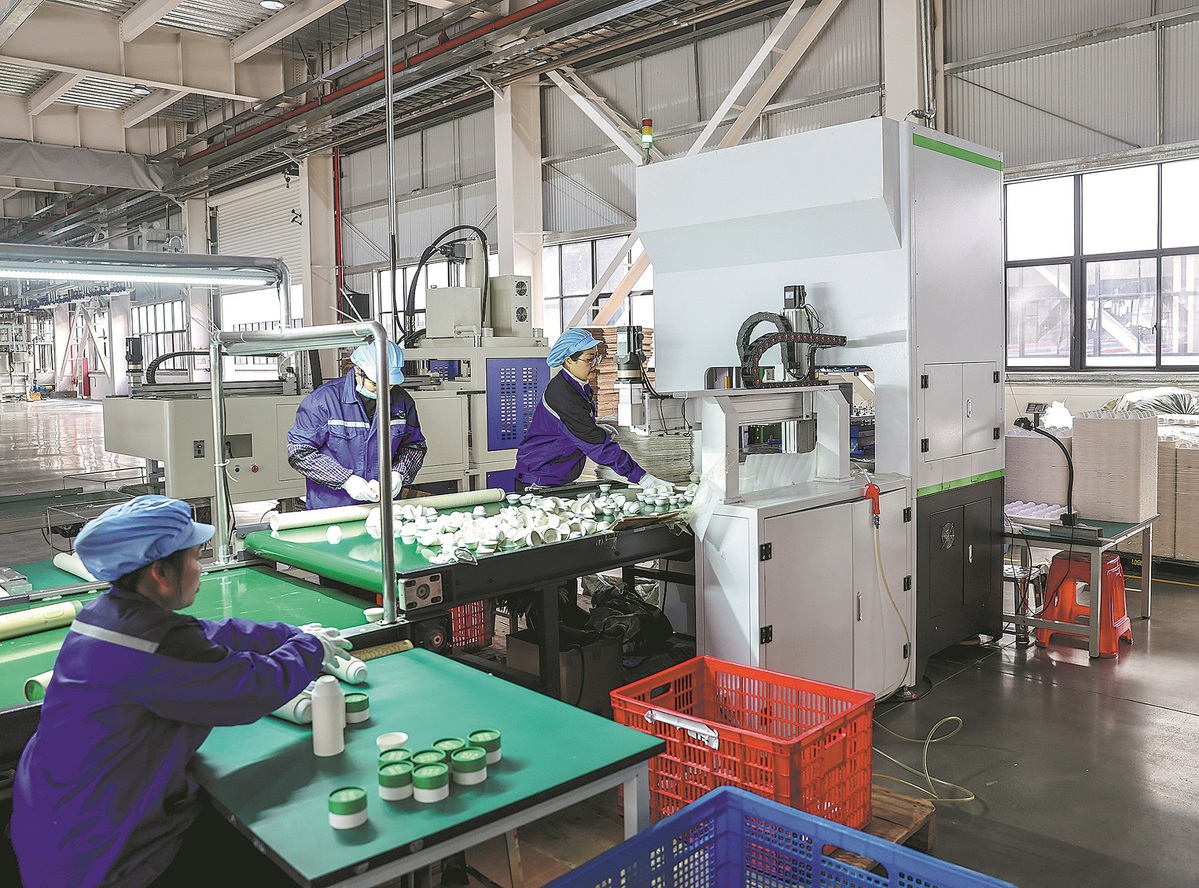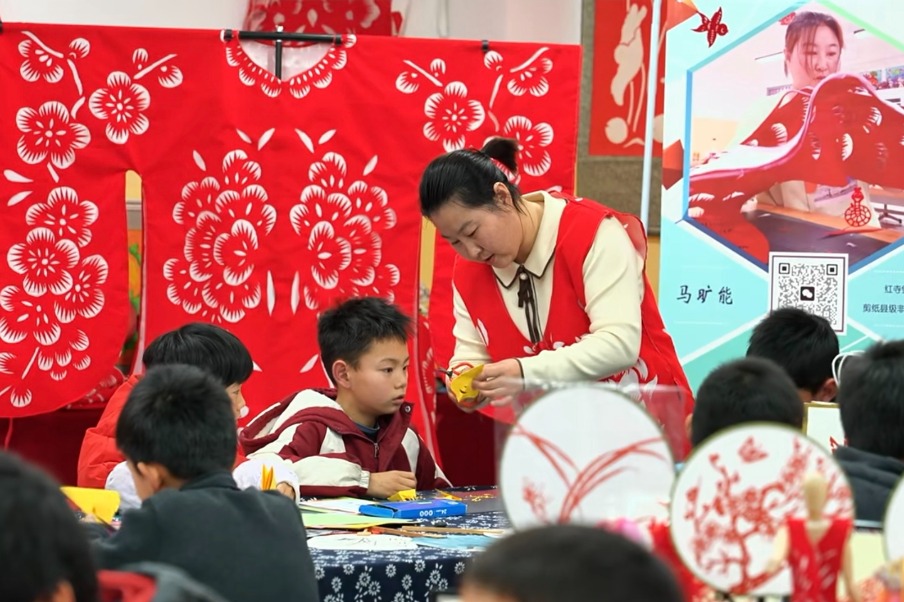Public 'nudged' away from single-use cutlery
Food delivery industry using innovative techniques to move in more environmentally friendly direction


Concerted efforts
Back in the 1990s, the sight of vast quantities of disposable polystyrene boxes discarded next to train tracks raised awareness among the Chinese population about the severity of "white pollution", leading to the gradual implementation of measures to address plastic waste, Meng said.
In 2009, China outlined a national standard for biodegradable plastic tableware, mitigating the market confusion resulting from the indiscriminate promotion of nonbiodegradable plastic tableware.
In 2020, the Ministry of Commerce proposed a 30-percent reduction in the consumption of single-use cutlery in the food delivery industry in cities at or above the prefectural level by 2025.
It is unclear whether this target will be met.
The country's inaugural national standard for eco-friendly food delivery — the Green Takeout Management Criteria — was launched last year, allocating financial incentives for using safe materials and packaging, and encouraging restaurants to guide their customers to not use single-use cutlery.
Some restaurants have embraced their social responsibility in this matter by allowing customers to opt-out of having single-use cutlery supplied with their meals.
In 2017, Meituan unveiled its Blue Mountain Plan, marking the first-ever dedicated environmental initiative solely aimed at the food delivery industry in China. This involves the platform providing incentives for restaurants to improve their packaging so that they are more environmentally friendly.
In the same year, Eleme added the "no tableware" option to its checkout interface. It later upgraded it into a default option to cater to differing local regulations, some of which have already banned restaurants from using single-use cutlery unless explicitly requested.
Combined, these "green nudges" could have a considerable impact on environmental outcomes, according to a study in the journal Science published last year.
The study, conducted by a group of experts from the University of Hong Kong, Peking University, the Asian Development Bank and the Hong Kong University of Science and Technology, predicted that if such green nudges are implemented nationwide, they could save more than 21.75 billion sets of single-use cutlery annually, reduce 3.26 million metric tons of plastic waste and save 5.44 million trees, without affecting the revenue of restaurants and food delivery platforms.

Long-term solutions
"While these green nudges exert influence on people's consumption behaviors, the longevity of their influence is worth pondering," said Zhou from Zhejiang University, adding that constantly updated interference measures may be a solution to bring about widespread change.
Zhang Deyuan from the Chinese Academy of Macroeconomic Research, said, "A sustainable mechanism should be established to reduce the consumption of disposable tableware and improve end-of-life recycling."
This involves diversifying the means of green nudges to ensure continued adoption of environmentally friendly behaviors, reducing the use of composite materials in production to decrease the difficulty and costs of disposal, and setting up a dedicated recycling fund for takeout packaging to address the issue of limited economic efficiency in recycling, Zhang said.
"Collaborative endeavors from producers, restaurateurs, platforms and consumers are essential to tackling this issue, with the need for exploration and discovery of effective solutions still ahead," he said.
limenghan@chinadaily.com.cn
- Stanford University economist praises progress in China's rural health system
- China's Red Cross boasts 3.5m registered volunteers and 34,000 service organizations
- Chinese gamer recreates Old Summer Palace in Minecraft
- Taiyuan ski resort reflects thriving ice-snow economy
- Lhasa's dancing yak mascots become online sensation
- China's postal services deliver 12.9% growth in Jan-Nov





































